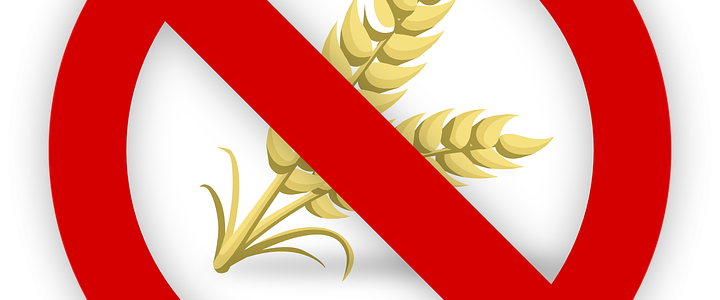What exactly is coeliac disease?

“I eat gluten-free”. It may sound like just another food trend, and many people may think it is just that, but for some people eating gluten-free foods is vital for their health because of the reaction their body has if they don’t. These people, 1 in 100 of us, have what is known as coeliac disease. It is now quite widely known, but what is it and what are the symptoms?
Coeliac disease is a digestive condition where the small intestine becomes inflamed and is not able to absorb nutrients. It is caused when a person has an adverse reaction to gluten. Gluten is a dietary protein that is found in wheat, barley, and rye, and is therefore found in any food that contains them. The list of such foods is quite long, and it includes breakfast cereals, pasta, cakes, some ready meals, and most types of bread, as well as most types of beer.
If people with the disease eat foods that contain gluten, the symptoms they experience can include gut-related symptoms of abdominal pain, indigestion, vomiting, diarrhoea, constipation, bloating; and more general symptoms such as fatigue, anaemia, mouth ulcers, unexpected weight loss, nerve damage, and disorders that affect co-ordination, balance, and speech. There are other symptoms too, so it is best to always consult a GP.
Coeliac disease is not an allergy or an intolerance to gluten, it is a lifelong autoimmune condition where the immune system mistakes healthy cells and substances for those that are harmful, and produces antibodies against them. In the case of coeliac disease, the immune system mistakes gliadin, which is a substance that makes up gluten, as a threat to the body. It is the antibodies that are produced which causes the surface on the intestine to become red and swollen.
In recent years, many people have now chosen to adopt a gluten-free diet, but it doesn’t mean it is any healthier; only gluten has been removed, after all. If a person cuts out their intake of gluten, they are reducing their intake of wholegrains which is a key source of fibre that most people do not get enough of. Therefore, for anyone who has not been diagnosed with coeliac disease, but is thinking of eating a gluten-free diet, I think it is important to research the topic first; you may be losing gluten but could be gaining more calories and fat in your diet, for example.
I think it’s interesting that the cause of coeliac disease is not completely clear, but it seems that a combination of genetics and the environment are involved in it. I know a few people who have been diagnosed with the disease, and this was around the time that restaurants and supermarkets were just beginning to make gluten-free products and dishes more accessible. I think it is more common nowadays for restaurants, in particular, to cater for people needing to eat gluten-free food, which is a big positive. Let’s hope it carries on becoming more widely known of.
Sarah Keeping MBPsS MSc PgDip GDip BA (Hons)
Follow Sarah on twitter at @keepingapproach
References
https://www.nhs.uk/conditions/coeliac-disease/
https://www.nhs.uk/conditions/coeliac-disease/causes/
https://www.coeliac.org.uk/coeliac-disease/about-coeliac-disease-and-dermatitis-herpetiformis/
https://www.jamieoliver.com/features/voluntarily-going-gluten-free/



